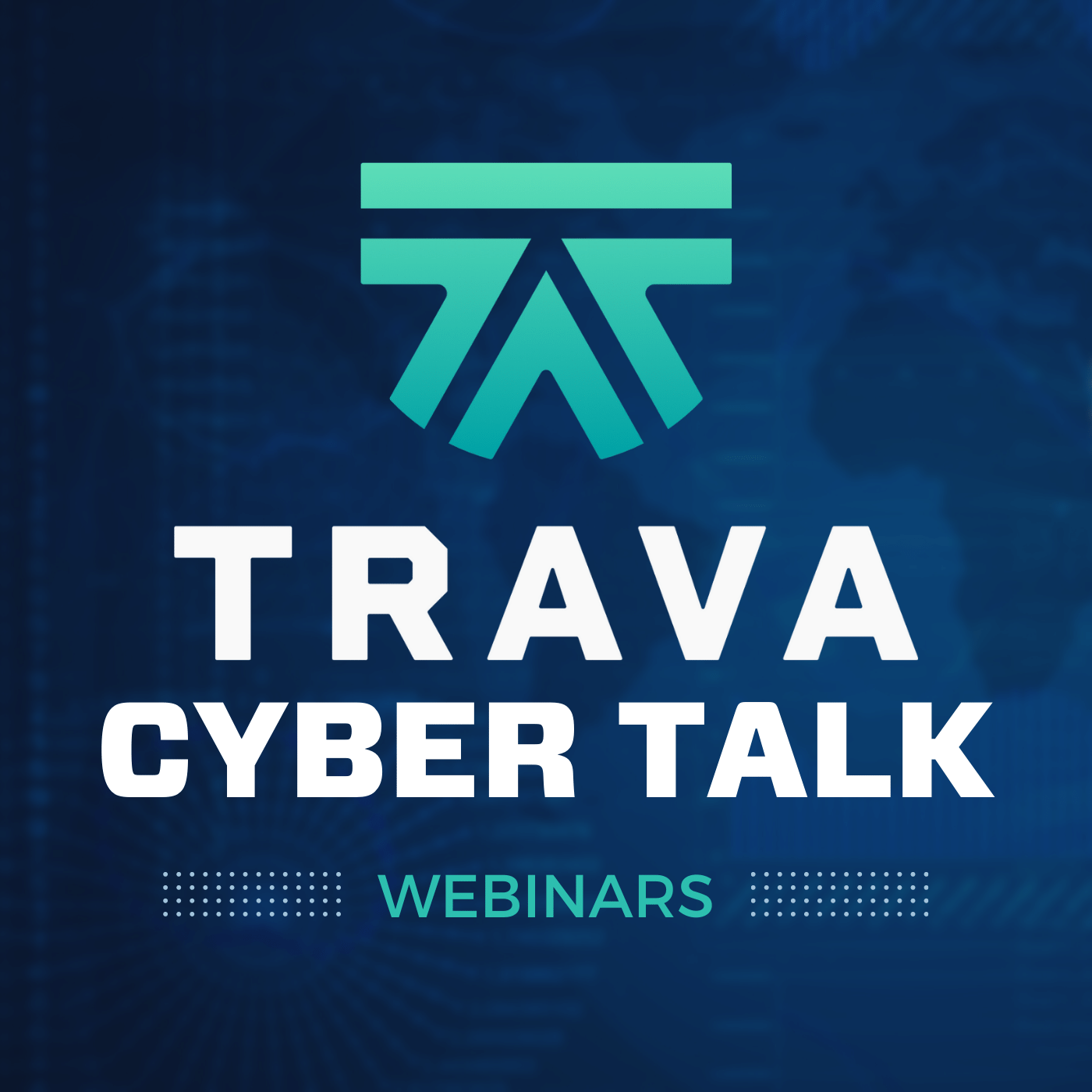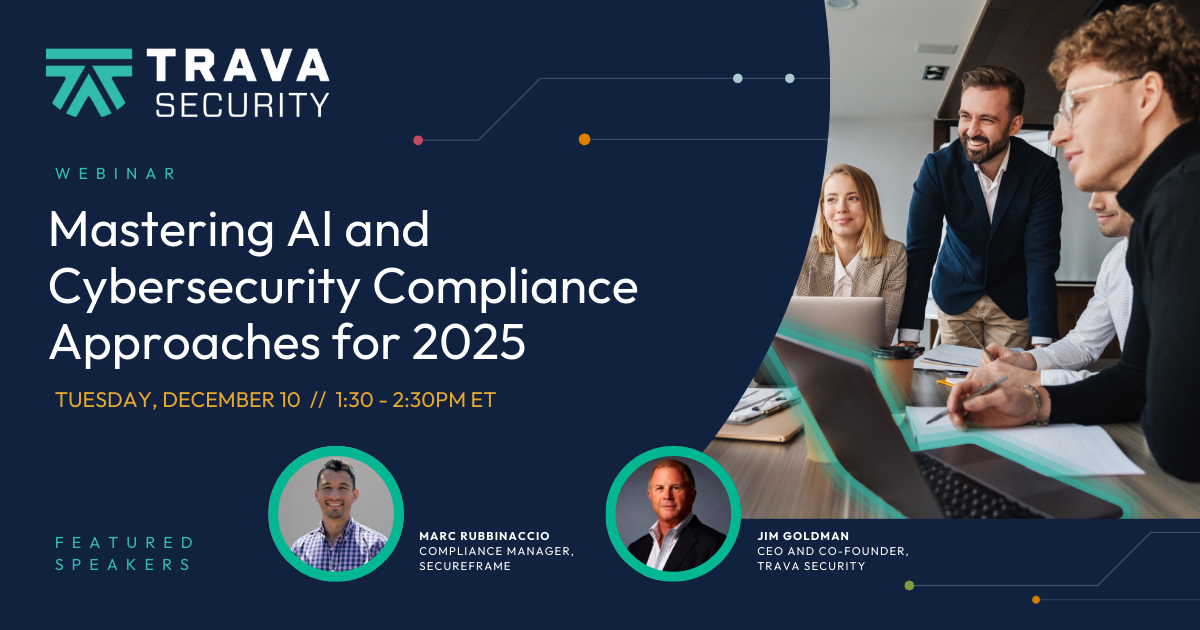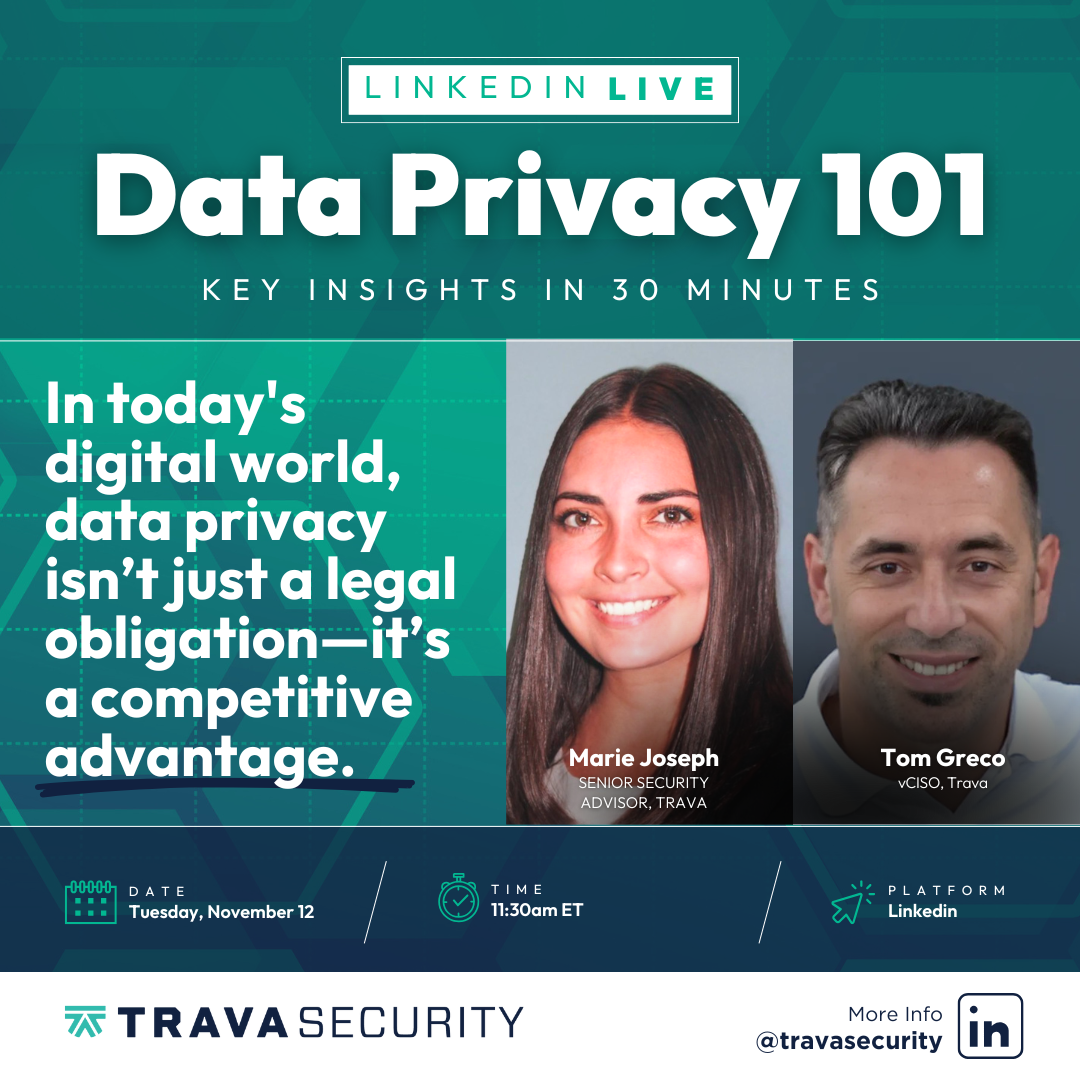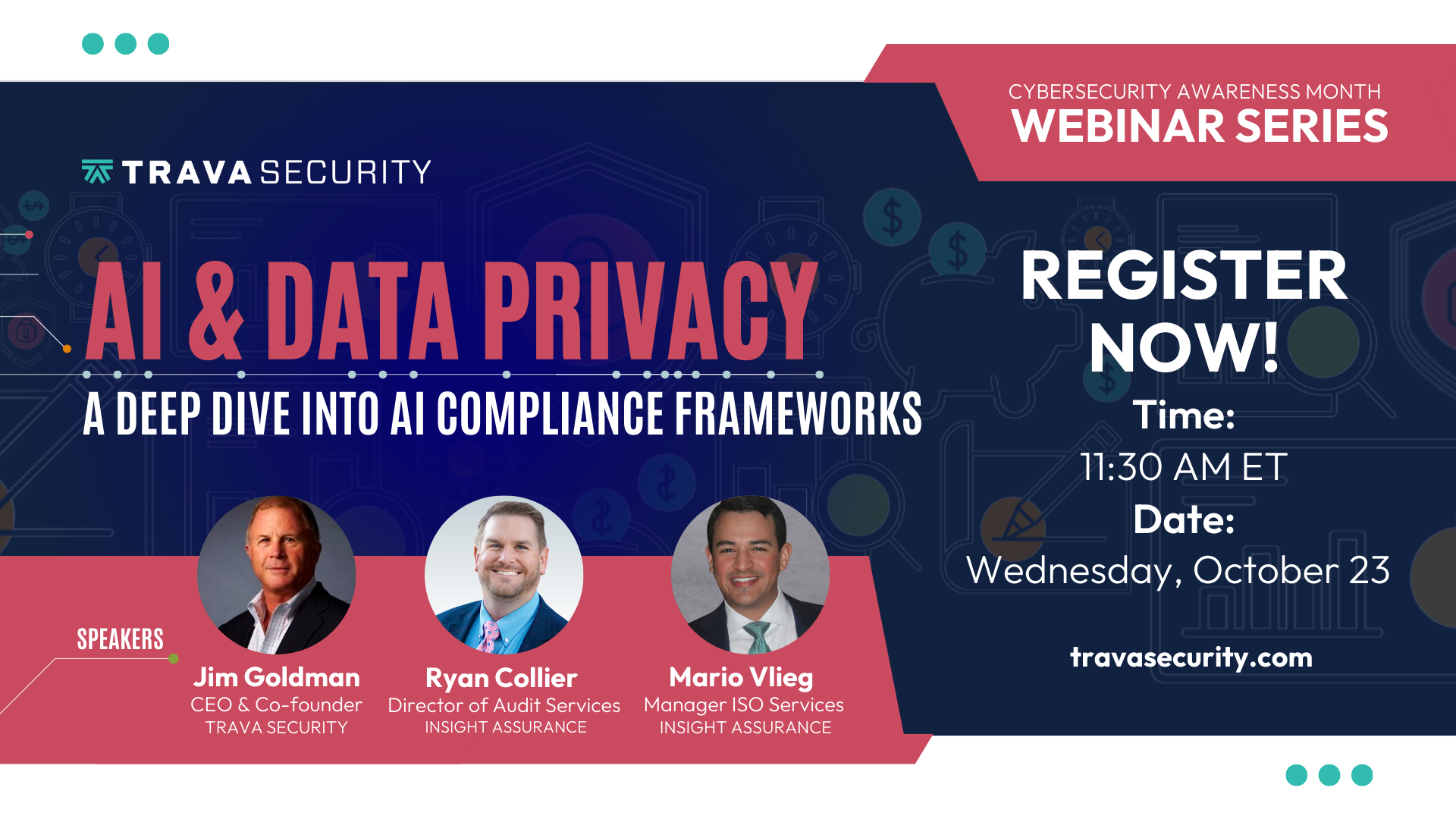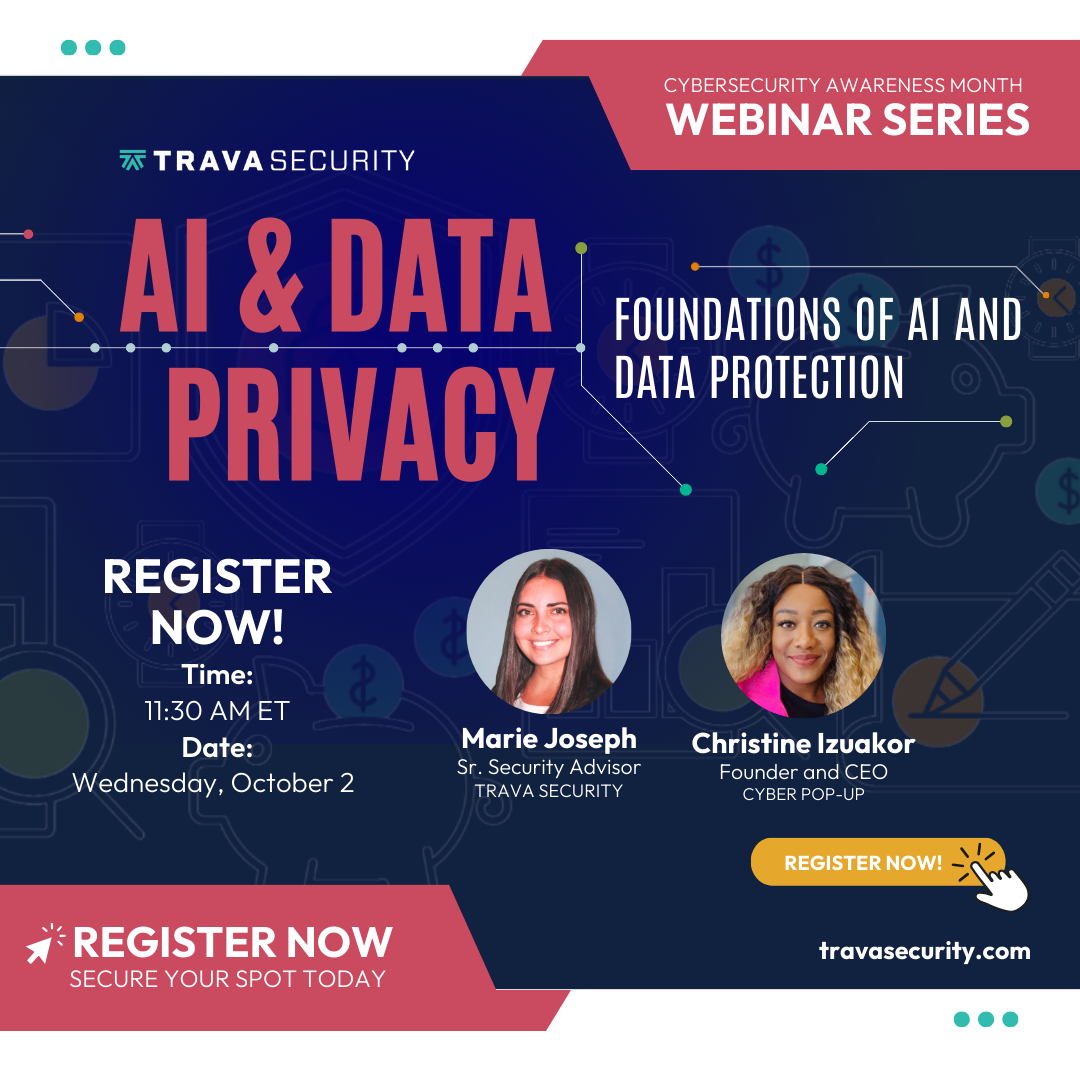Questions Every Insurance Agent Should Ask
- 0.5
- 1
- 1.25
- 1.5
- 1.75
- 2
Walter Witt: Hello everybody, thank you all for coming out today. We're very excited to be beginning this presentation and discussion momentarily. I think we want to wait probably two more minutes as people trickle in and then I'll kick us off. By way of introduction, my name is Walter Witt, I will be moderating the discussion today. I'm also very fortunate to work with the Limit team and so maybe I'll be able to jump in a little bit but I think we'll keep the discussion mostly between you, the audience, Ryan, and Yoav, both from Trava and Limit respectively. Like I said, we'll give it a couple minutes and we're looking forward to a really good discussion here. All right. And so it looks like we are exactly five minutes past and so I think it's good to get started. Again, it's great for you to be joining us today, we really appreciate the time, we're really looking forward to a good discussion. I am joined by two exceptional groups in the insurance and cybersecurity space as these groups have come together in partnership. And they're both not only experts in their respective fields but participants in each other's fields. And so a lot of the discussion today will be to say, " How do we come together in a unified process and ultimately drive both insights and results that better our customers?" In terms of that framing we will be tackling the eight questions every insurance agent should be asking. As I said at the start as people were joining, we want to keep this as interactive as possible. And in addition to the wonderful representatives from the wonderful companies we have here, we want you, the audience, to also be a part. So please feel free to chime in with questions. We will have time at the end as well to actually address that formally. And through the discussion, as we go, I'll make an effort myself to check and keep people in the loop. Again, to give a frame for sort of the key points that we would like to address, Trava, Limit all have unique clientele. How does each firm go about addressing the needs of that clientele and how in working together do they create a better experience for their clients? Insurance and cybersecurity are both challenging and complex industries. How does each firm, again, both respectively and together, go about navigating that challenge? And ultimately, how can you walk away with the tools to better understand the industry, better understand the trends, and ultimately make better decisions on behalf of your clientele? Finally, we want to talk about the sort of unified process. Cybersecurity and cyber insurance go hand in hand today. This is a very complex and scary world as we know, there's a lot going on both sides of the equation. Making that connection between the two is becoming not only increasingly important but necessary, and so we would like to offer an answer and we would like to address, again, any questions you'll have around those points. Without further ado, as I've introduced myself, again, Walter Witt, who will be moderating, I'd love to hand it over to Yoav from Limit first who'll give his introduction, and then Ryan if you'd be so kind to jump in with yours.
Yoav Shaked: Great. So by way of introduction, my name is Yoav Shaked, I'm the COO at Limit. Limit is a digital wholesaler that integrates retail brokers and carriers for both their admitted and DNS needs. Our claim to fame is that we help our clients procure coverage for their clients and their insureds faster, better, and cheaper than anyone else. Our flagship product was, of course cyber, but we've been growing on a terror across many lines. I'm delighted to be here. And Ryan, over to you.
Ryan Dunn: Absolutely. Thanks, Yoav. I'm Ryan Dunn, I'm the Director of Insurance over here at Trava. Trava's a cybersecurity firm. We have a platform and cybersecurity team that helps clients on the insurance side better prepare for their insurance renewals, move agencies from a reactive model of trying to address security concerns after market submission to a proactive model of trying to take care of their cybersecurity controls and vulnerabilities ahead of time rather than after market submission. Additionally, we have a group of vCISO's that help agents and their clients better prepare for their compliance whether that be SOC 2, ISO, CMMC. Our team helps those clients through their agencies better prepare for those types of compliance frameworks and also guide them through that whole compliance framework process. We have a heavy focus on insurance but also the cybersecurity side as well.
Walter Witt: That's wonderful. Thank you, Ryan, thank you, Yoav. Without further ado, I would love to jump into the discussion. The first question is for Yoav from Limit. Limit on the insurance side is dealing with a very wide array of clients, insurance agents, and various people in different ecosystems. What do you do to understand the unique needs and risks of your clients? And how has that shaped your experience in the industry?
Yoav Shaked: That's a great question, Walter. In our capacity as a digital wholesaler, we've got two key levers that we pulled to better understand our clients. The first lever is, obviously, the insurance application where we learn key pieces of information that ultimately inform our insurance procurement experience. We learn information like a client's revenue code. Excuse me, like a client's revenue, their industry class. But just as important, their cybersecurity practices. For instance, whether they've got MFA implemented or if they're PCI- compliant. So using the application we learn a lot of really important information that then informs how we go about procuring cyber insurance for the client. The second lever we pull in, I'm sure that Ryan will chime in here, is our Trava cybersecurity integration. When we receive a submission we ping Trave and generate a Trava cybersecurity report that helps us do exactly what Ryan described, right, get really proactive about informing retailers that their insureds have potential gaps that they need to close either prior or during the cybersecurity insurance purchase process.
Ryan Dunn: That's huge. I think Limit's ability to universally approach carriers in such a seamless fashion is your guy's bread and butter, it's pretty fantastic. Additionally, I love that how you guys have integrated our product in there to help your agency customers get this report, get an idea of what their customer's cybersecurity framework looks like. And they can use that for prospecting or preparation, right? A huge fan of how Limit's integrated that in so far.
Yoav Shaked: Absolutely. For our clients, the reports are really going to hit, right? They're really useful tools as clients try to proactively deliver on value add services that make them more competitive in the market as well.
Ryan Dunn: Absolutely.
Walter Witt: Maybe Ryan you could talk a little bit about the nature of that cybersecurity report. What is going in? What are you seeing from that report that helps you make an assessment? What are the mechanics? Give us the on- the- ground view as we take a look.
Ryan Dunn: Absolutely. At Trava, we heavily believe in education. We think that agents deserve better cyber education as well and better... Need to be able to speak to these reports that are delivered. The idea comes from the coalitions of the world, the Corvis's of the world, they were delivering these reports. And so we wanted to match that but we also wanted to provide education on top of it, right? What is a network port, right? What is a certificate? If you have breach credentials what does that mean? In that report we not only are providing the agency, " Hey, your client has an unnecessary port open, you should solve this before going out to renewal." Or" Hey, they've had five breached credentials within the organization we should address this before going out to renewal." But also, why is it important to solve this not only from an insurance side but from the cybersecurity side? What's the threat? What's the solution towards it? Empowering the agent to be able to just provide that to not only the client but their IT company, whether that's in- house or external MSP, is the basis of the report.
Walter Witt: That's really helpful, that's really good insight. I'd like to challenge both Limit and Trava to think about a time where you're dealing with a very say, peculiar set of circumstances, right? Maybe something extreme is revealed in these reports. Maybe on the Limit side there's a counterparty that has some complexity. How did you go about number one, understanding that complexity or that peculiarity? And then ultimately, how did you use some of these tools, some of this reporting, some of these applications, the information you're getting... How did you use that to address the complexity or even solve it if possible? Maybe Yoav you could jump in and then Ryan.
Yoav Shaked: Absolutely. At the end of last year we received a submission for a construction contractor. Over the course of their submission process things looked pretty good, right, the Trava security report was generally okay. But as we had the client start filling in the application we discovered that they hadn't implemented MFA. Over the course of last year and the year before, not having MFA implemented was an automatic drop for most carriers, right, in light of the increased ransomware risks. So we had to work really hard and proactively with the client such that they would ultimately implement MFA and we could go back to markets and have them reevaluate their decision to decline the risk upfront. The really interesting thing that happened, and I think it's worth highlighting, is just the premium impact that a simple measure like having MFA enabled can have on your quotes, right? So we received one quote at the time. But ultimately once the client put in place such a basic cybersecurity measure we started getting quotes from other carriers that were about 50% what we had originally received so it really did move the needle from a pricing perspective. And I think that's where close relationships between ourselves and cybersecurity vendors like Java can really step in and help, right? When we identify these gaps, that really can move the needle or can ultimately dictate whether we get a quote or not. Plugging cybersecurity vendors in such that where those gaps exist they can help them get closed.
Ryan Dunn: That's a-
Walter Witt: I think-
Ryan Dunn: Go ahead. Walter.
Walter Witt: No, please, please.
Ryan Dunn: I mean, that MFA piece is huge definitely, and it's definitely increasing, right? I was just at NetDiligence recently and one of the biggest conversations at that conference was "Hey, great, you have MFA but now they're starting to get to what extent, right? It's great you have it implemented but I think carriers are starting to recognize like hey, it's not a yes or no question it's a hey, to what depth is your MFA? Are you using text messaging MFA? Are you using a third- party app MFA?" I think Limit's in a great position to be able to identify that and then bring in cybersecurity partners, like you said, to help navigate that and remediate that. Walter, that question actually reminds me of a really interesting situation we had with a partner agency. They had a client, it was a renewable... A renewal client and they were not trying to move carriers. However, when the carrier ran their scan they found that there was three open ports that were unnecessarily opened. They came to Trave and they're like" Hey, we have these open ports what do we do about it?" And what we were able to do was run our own scan, identify that even though the scan says that these ports are open there is documentation behind it that shows hey... That showed the hosting company knew that these ports were open and that they had already solved it on the backend. And so Trava was able to identify, confirm those ports are open, work with the team on the backend to provide documentation and push back on that specific carrier. And so that went from an automatic declination to a renewal quote. It helped the agency from having to try to scramble and address the market in a really late minute fashion, but also keep that client with that specific carrier.
Walter Witt: That's awesome. Mission accomplished. Already there are a couple of threads I see even coming out of early discussion here. One of our main points of the day, unification. Early Trava reporting combined with Limit proactiveness. Not just breadth but depth of market and understanding really goes a long way to sealing the deal. From the Trava side, the threat I'm picking up is market expertise and understanding of both broader insurance trends but then also very technically- oriented cybersecurity practices, vulnerabilities, and probably most important ways to remediate them. One can understand the problem... If they don't have the ability to have it remediated then it's not a closed loop. And I think Trava clearly is bringing that closed loop and that expertise on both fronts. A question for you, Ryan, and then maybe Yoav has experience based on quotes received. We talk about the market changing, and requirements are becoming more... Hard and fast rules are applied more strictly. Things are a little bit more severe given both the nature of the economy as well as the nature of the threat of cybersecurity. How have you seen that change over time? And I'll frame it maybe the last year. How have you seen that change practically? What are some steps you're taking to address that in the Trava organization?
Ryan Dunn: That's a great question. Walter, at first I was about to go eight years back but we'll just take it to a year.
Walter Witt: Too much. But please, please anything.
Ryan Dunn: How long do we have? Frankly, what I've seen recently in this past year, it's been super interesting. We've had a mixture of... Over the past couple years, prior to last year, a lot of rate increases, right, year over year over year, and we've hit a stalling point on that. That's a mixture of those rate increases but also ILS structures being introduced to the market so a little bit more financial capacity has been put into the market. We've seen somewhat of a soft market, right? A soft market has played well so far. I'm somewhat worried that it's going to make clients loosen up on their cybersecurity controls a little bit here or stop investing in them. Inevitably we're going to go back into a hard market. It's the same with any line of coverage, right? You get to a soft spot and then it becomes a price game and then it goes back into a hard market. Where it's gone is, obviously, hard to soft. What I see happening, once it goes back into a hard market, is more of this verification thing I was talking about. I think there's going to be carriers looking for verification of data being inputted on these applications, right, like I mentioned the MFA piece. To what extent do you have MFA? EDR same thing. Great, you have EDR but is it on 70% of your endpoints? Is it on 80% of your endpoints? And being able to produce that information at scale is going to be extremely important, right? It's very, very difficult for a carrier to go directly to a client and get that information. A wholesaler like Limit, with a technology platform that can retrieve this information at scale, is going to be extremely important. So that's where I see that market going is more verified information but the people that can produce that information at scale are going to win there.
Yoav Shaked: I think that there's an interesting question with regards to the generation of these cybersecurity reports, right? You've got some cases where carriers sort of build it themselves. And I'm thinking sort of At- Bay, for example, they implemented their own sort of bespoke cybersecurity report. But other cases where carriers frankly don't have them, right, and I think that maybe Trava might do a great job sort of stepping into the fold there and providing it for them.
Ryan Dunn: Exactly. 100%.
Walter Witt: I think that's really good context. Yoav, in your experience, having the boots on the ground in terms of the applications out, quotes received, feedback from carriers, how have you seen that change quickly over the year? Maybe an example or an anecdote would be interesting.
Yoav Shaked: I mean, Ryan basically hit the nail on the head, right? Markets here are sort of like pendulums, right, we swing back and forth from sort of hard to soft and then back to hard market dynamics. And it's really interesting, right, because Limit was actually founded at the very beginning of a very hard market, right? The beginning of COVID led to some serious hardening and so we were watching as the sort of pendulum swung in the office direction. But increasingly over the past sort of ballpark year, the market became really soft. So I would say there still is a fair degree of back and forth between sort of markets and the more complicated risks, right? So when the risks sort of exceeds certain revenue thresholds or the cybersecurity measures aren't as vanilla as you'd expect, there still is a fair bit of sort of market scrutiny. In softer market environments, that market scrutiny isn't as aggressive.
Walter Witt: That's helpful, that's helpful. It gets to bigger picture question and focus. Again, a focus of the day. A lot of any business is storytelling whether that is the story of the deal and how you're moving through, whether that is the story you're telling to the carrier and the counterparty how you're framing information, how you're making sure that applications are high quality and put in the best light and so on. I think it's very much the same for cybersecurity. You're framing a report, that report tells a story of a cybersecurity protocol, and that story had better be succinct and correct if you're going to have an effective product and impact on the industry. My question first to Ryan is, how do you take that storytelling skillset and use it day- to- day? What methodologies do you use to frame your recommendations? How do you cut through what is a very, very complex set of processes and deliver such sharp, clear feedback in such a succinct manner? What are the tips and tricks of the trade?
Ryan Dunn: That's such a good question. When I was a retail agent and even a wholesale agent, I always thought of ourselves as agents, as storytellers, right? We're trying to frame the company and put them in their proper lighting to the underwriter, right? Underwriting, it starts out with certain buckets, and then from that bucket it becomes somewhat subjective, right? So you really have to hey, they're in this tough class but why is this a great business that you should underwrite? And so it alludes to two things for agents, right? With the way Trava tries to implement storytelling for agents is all right, when agent is speaking to customer it's how can we improve? Where can we improve? When it's agent storytelling to underwriter it's why is their cybersecurity mature, right? So instead of delivering a report... When we deliver a report of let's say their cloud environment, their MFA environment, as well as their external environment to the customer through the agent it's" Hey, these are your critical vulnerabilities, this is what you need to be addressing?" When it's the underwriting report from the agency to the carrier it's" Hey, this is their cloud maturity, this is why they're cloud, why you should underwrite the risk. This is why... This is what they've done about their breach credentials." You flip the script, right, it's a completely different story you're telling. I think that's super important when it comes to empowering agents to do their best is empowering them to communicate effectively to their clients in how they can improve, communicate effectively to underwriters, and how or why they should underwrite the risks.
Walter Witt: That's very interesting. Yoav, I'll ask you the same. I'll admit, I have a little bit of insider information. A little bit of a tip tip was slipped to me before the call.
Ryan Dunn: I wonder why.
Walter Witt: Limit has a quote recommendation that they're running and we're passing along with all of our quotes. A lot of that to me is you're telling the story of the deal, right? What is good? What is less good? What is the recommendation? Would you mind walking us through that sort of offering and maybe talking a little bit about how your storytelling insight went into its development?
Yoav Shaked: Absolutely. One of the key sort of gaps in the insurance space is this huge gap in just education, right? Understanding what coverages mean, understanding where the gaps lie, and what it means to not have a certain coverage in a palsy. What we endeavor to do at Limit, right, is to close that gap by leveraging our team and our automated engines, recommendation logic, such that we can, from sort of the sea of quotes that we receive, and on any given deal we can sort of see anywhere from 20 to 40 quotes, extract the appropriate quote for this risk and present it to the retailer such that it is prepared and ready to be sent down to the insured for consideration. From a storytelling perspective, we do a few things to address the what I call sort of that education gap. First, we provide both retailers and agents... Excuse me, both agents and insureds with clear definitions of coverages in a way that's intelligible and easy to digest, right? Because often what happens is that you get lost in sort of the legalese and these policy docs or quote documentation and you forget sort of what you're actually talking about. In our quote recommendations, we provide a really clear, concise definitions of the stuff that people are seeing. Second, we provide retailers with examples, right? What does an example claim that would trigger a policy such that we can empower retailers to really speak intelligently to the risk and substantiate the recommendation that we're making to the client? So I think that the way that we approach storytelling vis-a-vis, our quote recommendations we do, again, two things. One, we're really good about ensuring that we provide retailers with definitions, right, an ability to really understand what they're recommending. And two, we provide claims examples that makes it all a lot more tangible, right, and easier for the insured to really understand in a way that makes sense to them.
Walter Witt: That's great. I'll jump in too. Again, a little bit of insider information. Of all of the extremely positive feedback we've gotten from the Trava reporting, the thing that stands out the most to me has always been how clearly defined things are and how quickly one is able to review a report, understand precisely the nature of the cybersecurity situation or standing, and then take action immediately. It's a tremendous strength of both platforms. And I think it gets to, again, the point I surfaced at the start of this conversation, Limit, Trava doing slightly different things in slightly different industries but doing it in a very, very similar way, in a way that adds a lot of value to the clientele. You all have touched on something that I really liked, the education aspect. Ryan, a question for you. What are things that one should keep in mind when discussing cybersecurity insurance to agents? Particularly, how does one cut down on the complexity? How do you navigate that conversation beyond the report, but how do you navigate it verbally in a way that's comprehensible to the modern, maybe not tech- savvy individual?
Ryan Dunn: That's a great question, Walter. I feel that the market has really tried to educate agents on cybersecurity. There are agents out there that have learned a ton and they've become very proficient in it. Now, I also believe a bulk of agents frankly want to be insurance agents and they don't want to be cybersecurity professionals. Knowing that nature has led us to take the position of hey speak... When it comes to cybersecurity, speak to Trava, speak to the report, don't try to be the expert. Just understand that if you point towards the platform or if you point towards the reporting then you have done your job, you have provided the value piece. We try to give a brief education on like I said, the ports and the certificates, what they mean, and why they're important. If they are able to speak to our expertise rather than be experts themselves we have found that to be a more effective model and more empowering to the agent. Make them the cyber insurance experts while we be the cybersecurity experts.
Walter Witt: That's important, that's really important. It gets to the heart of two companies-
Ryan Dunn: Exactly.
Walter Witt: Partnership and a full life cycle on all sides of the equation.
Ryan Dunn: Just how Yoav was saying about how you guys provide definitions, right? And claims examples, that's so big. And they are insurance agents, and so they can speak to that and be a professional about it, and understand it. And repetition of that over and over again, then they become pros, right, and they can point to Limit for introducing them to that knowledge.
Walter Witt: Right. I'd like to ask Yoav a slightly different question given that I think a lot of the premise with Limit is in the education and then building that out. Part of education is understanding the market and the market changes. What do you do to keep apprised both of the cybersecurity market industry ecosystem but then also the cybersecurity insurance ecosystem? Maybe give a couple of examples.
Yoav Shaked: That's a great question, Walter. We do quite a bit to stay up to speed on what's going on both in the cybersecurity insurance market, insurance regulation generally, and sort of cybersecurity trends, right? So on the cybersecurity insurance market side of things, we do a lot of really aggressive parsing of our internal data, right? At this point, we're quoting thousands and thousands of insureds on a weekly, monthly basis, and that gives us a lot of power, right, to then query our own data to really understand where the market's going, right? What are things that the market really likes to see and ultimately moves the needle on premiums? Where are we sort of seeing a lot more success quoting? And does that mean that the market is sort of expressing quote- unquote a market- wide appetite for specific classes of business or revenue banks? So we do a lot of work around just really understanding our own internal pricing data and what's going on in the market from that perspective. Importantly, we don't sort of hound all this information ourselves, right, we actually supply that to the retailers on our platform, right? So we've got what we really like, a really important element on our platform, the cyber market index, right, which really helps our retailers understand if they're getting a good deal or not, right? They can put in some really basic information about insured and then they can see, look, these premiums look appropriate or they really don't. And unless there's a really good reason why it could be that they're not getting a great deal. I think that we do a lot to empower our retailers as well to understand sort of dynamics on the cybersecurity insurance market. When it comes to just general cybersecurity, right, we try to stay as plugged in as possible to the ecosystem, right? We've got pretty active conversations with vendors like Trava, we've got our cybersecurity marketplace where we're in active conversations. And actually, I'm pleased that Walter's sitting here because Walter's actually led that charge to really build out that environment and that ecosystem. So we try to just stay plugged in and really understand where vendors play in the space and the risks that they seek to help address.
Walter Witt: Maybe Ryan you could give some insight into your data. What you think about how you are looking at that and how it informs your view?
Ryan Dunn: Well, I find this very interesting because there's a consistency between the two companies, right, is controlling the data, and querying it, and being able to pull from that. Our CEO, Jim Goldman, is a firm believer in if we're able to control our data... Pull in this data and query it then we can accurately assess cybersecurity. It's very tough to pull in third-party resources that have already aggregated the data and try to model cybersecurity off of that, right, because sometimes you don't really, truly understand the data that lies... Where does that come from? Trava is a firm believer in okay, if we're going to absorb this, or if we're going to be a cybersecurity expert and provide people scoring on their cybersecurity risk, we want to be basing it off of data that we understand, we know where it comes from. We leverage that to provide a more accurate and proprietary scoring system to our clients.
Walter Witt: That's awesome, that's awesome. I want to take a second and... I do for the audience want to remind, if there are any thoughts or questions or anything that you would want to talk through or discuss, we do want this to be as interactive as possible so feel free to post a message and I'm happy to read it aloud and have it reviewed by the experts here. I'll give a couple of seconds so you can start typing and we can see where that goes. While we're waiting on that, a good question for both groups, right, Limit and Trava we talk about this partnership, we talk about this sort of unified approach. I think in the discussion so far we have seen how important it is to have Limit interface on the front end, Trava running with the cybersecurity, empowering the Limit client to be the expert with the stated goal of bringing data, bringing the qualitative expertise, bringing the execution expertise, and then ultimately rounding it out on the insurance side with Limit executing going full circle. What are some things both groups would think about in terms of future partnership? Do you see opportunities to continue collaborating? What is version 2. 0 of that ecosystem and of this industry? What do you think that looks like? And please no need to be so specific, but what's the broader vision? Maybe, Ryan, you're welcome to jump off and then Yoav.
Ryan Dunn: I have an idea of what that looks like. For the viewers out there, Yoav and I have not collaborated on this in the background. I think that Limit has positioned themselves in a fantastic way to integrate with any size agency. And us at Trava, we are really focused on how can we access data at scale. Where I see the partnership going is how can we provide Limit more data, right? The MFA thing I was talking about, I see us integrating that type of data into Limit. I see us integrating just more cybersecurity, cloud infrastructure data, stuff like that that can assist with... If we go into a hard market it could assist with that and keeping Limit's value proposition there for streamlined quoting. I also see it helping with middle-market accounts, right? Middle-market accounts, they... Underwriter wants a really broadened view of the client's cybersecurity infrastructure. Keeping Limit's value proposition of being able to provide quotes in a very scalable and easy fashion in that larger or harder-to-write business space, I see Trava and Limit working together in that segment.
Yoav Shaked: I see two avenues of further collaboration, right? As Ryan pointed out, we've got an insurance application where the real basics aren't going to change in the long term, right, you're always going to get asked if you have things like MFA enabled. If there's a way for Trava to, in an automated fashion, figure out whether some of these cybersecurity measures already exist, having some sort of robust integration where Trava can inform some of the application responses subject to key information about an insured, that's a really interesting avenue where we can potentially collaborate. The other avenue where I think... And this is a little more sort of Limit focused but still relevant to Trava where we can potentially work together is doing two things. One, correlating Trava scores of prices, and then two potentially correlating Trava bores with claim scenarios, right? I think that those sort of two avenues are probably where the relationship is eventually going to go. I don't think that they're necessarily super short term but I think that in the medium to long term you'll see that that's where the real deep collaboration is going to exist.
Ryan Dunn: That latter point, absolutely, I completely agree with that. Correlating claims with cybersecurity, I mean, that's a huge problem that hasn't been solved yet so I think that that would be a great thing to collaborate on.
Walter Witt: And I think the thread in all of this, and I've heard it now from both sides, markets are cyclical. Things will be very good, things will be in a hard market, sometimes you'll have a little bit of softening. As we move away, hopefully from the softening market, things start to strengthen. We are riding the great wave together and it's leading to a wonderful set of opportunities and outcomes for all of our clients and hopefully to the broader industry. I think that's been a lot of my joy in this role, particularly on the cyber side, is bringing security to US markets, help strengthening existing companies, and ultimately keeping the bad guys at bay. I think that's a lot of what it's all about. As we start to wrap up... And again, I welcome any participant. If you have question, comment, please feel free. I want to end on sort of one final question or one final topic. This can be fun, it can be interesting, anything that comes to mind. And if nothing comes to mind then that's also okay because sometimes the business is the business. Maybe point to one really interesting scenario you encountered, whether it was... And without specifics, but a deal type, a situation, a market, a personal interaction. Maybe it was something really meaningful. Maybe you helped save a small company doing some important work. Maybe you helped a client in another way. I would love to hear one little story and then I think we can start to wrap up here. Yes.
Yoav Shaked: It just comes back to this education piece. I think I've just been remarkably surprised at how eager the market is to really understand cybersecurity risk. And specifically at least on the insurance side, really understand what all this stuff means, right? There's this sort of stereotype of an insurance agent being sort of a party that doesn't really sort of welcome change or who isn't really eager to sort of grow or grow in knowledge. And I think that I've really been very pleasantly surprised by the opposite, right? We've interacted with quite a few agents across everything from sort of geography, demographics or cohorts through age, right, and it seems like the universal thing is that people really do fundamentally want to understand what's going on in the market and do what's right by their clients. And I think that that sort of has been a really reassuring trend, right? We've got some really wonderful retail clients on our platform who really want to do right by their insureds. And a great deal of that exercise, the doing right by your insureds is understanding what you're trying to sell, and they do a really great job at doing that. They're really eager to learn and we're really eager to help in whatever way we can.
Ryan Dunn: That is so true. I agree with you, Yoav. I always felt that people viewed the insurance agency as a slow moving ship, but I have been pleasantly surprised, especially after going to these recent conferences specifically around the cyber world. The agent that is focusing on cyber, it's a new wave of agent. Super interested in learning, wants to change, wants to lead a new direction. It's definitely a new changing of the guard type of situation. I definitely see the insurance world becoming faster and more aggressive in trying to solve problems for their clients rather than sit back on their laurels and just... I think I've been extremely surprised as to how eager agents have been wanting to jump onto a cybersecurity platform like Trava, right? It's been super interesting to see that. I also find it encouraging that carriers are starting to pay attention too. They're opening up their doors and they're wanting to solve this problem as well. And so I've been finding those conversations to be pleasant as well. And interesting that they are so open to hearing what... Whether it's Limit or Trava, what we have to say and how we think that we can solve these problems.
Walter Witt: I'm pleased and not surprised to see that once again we share very similar views and very, very similar mentalities and approaches to doing the work really, really well and being experts in our respective fields, and then ultimately coming together as one to really build a better process and to continue in this path of innovation. That that will be the defining characteristic hopefully of our partnership here. As I've said, I really do appreciate the time, this was a wonderful discussion. Thank you, Yoav, thank you, Ryan. If there are any follow on questions, anything, please feel free... My contact is there, Yoav's, Ryan's contact is there. Please reach out to us we are always happy, and willing, and love to chat with participants, and we love to be in the market. And with that, I believe we can call conclusion. Like I said, thank you everybody for joining it's been a wonderful discussion. We look forward to hopefully many more and a very bright future for the partnership. Again, building better and building that unified closed process that really adds value. Thank you all.
Ryan Dunn: Absolutely. Thanks, everyone. Thanks, Yoav, thanks, Walter.
Yoav Shaked: Take care. Thank you.
Ryan Dunn: Bye.
Walter Witt: Thank you, guys. Take care.

